A list idea has been flying around: 10 books that influenced you most. The contributions so far have mostly been coming from political/economics bloggers, like Will Wilkinson, Matt Yglesias, and Tyler Cowen, who started it. But Jenny Davidson at Light Reading has chimed in (the top book on her list has been added to my wish list), and I think it would be fun to see other book bloggers tackle it. Plus, I’ve been trying to think of how to introduce more of my personal voice and experience to the blog here, and this seems like a decent step in that direction. My caveat is that “influence” is used broadly here. For political bloggers, I guess that verb makes more sense. So it’s inexact, but I have tried to use it as a rough guide; this is not simply my 10 favorite books, though a few of them would show up on that list. With that throat-clearing out of the way:
1. The Cricket in Times Square by George Selden
by George Selden
I don’t remember much about this one except that I cherished it, and I thought it was appropriate to start off with a book that influenced me to love reading in the first place.
2. Slaughterhouse-Five by Kurt Vonnegut
by Kurt Vonnegut
I read this for English class during my junior year of high school, and up to that point I don’t think I had fully made the transition from enthusiastic young reader to adult reader. As much as anyone, Vonnegut spurred that transition, as I’m sure he’s done (and will continue to do) for many.
3. The Brothers K by David James Duncan
by David James Duncan
I read this novel about a family in the Pacific Northwest of the 1960s when I was 19. It deals with baseball, religion, Vietnam, family. It’s shaggier than most of what I read now, but in a good way, and I’ve never had a deeper emotional investment in a novel. Being 19 will do that to you, but Duncan also earned it. I wrote about it at greater length here.
4. The Varieties of Religious Experience by William James
by William James
The best thing I’ve ever read, and a book that can be considered a classic across several disciplines — psychology, philosophy, religion, and (weirdly but truly) self-help. There’s just no way to read James’ thoughts about the human condition — his sympathy for its trials and his faith in its consolations — without feeling profoundly comforted. This also sent me to the rest of James’ work, which is now, collectively, among my favorite things in the world.
5. Gilead by Marilynne Robinson
by Marilynne Robinson
I’m a functional atheist (aspiring agnostic?), but like James, Robinson is a tonic for anyone, like me, who believes not only that spiritual experience can be investigated without recourse to personal or political strong-arming, but that it’s a necessary, rewarding investigation. Plus, Robinson is a lovely, exact writer, and anyone who writes can only hope to be influenced by her on that level.
6. Notes from Underground by Dostoevsky
by Dostoevsky
This might be the least “influential” book on the list, reading it well after I had discovered existentialism. (Speaking of which, The Myth of Sisyphus should have made this list.) Sure, I’d like to write like Dostoevsky, but I’d also like to sing like Otis Redding and hit clean-up for the Yankees. This is just a great, timeless book.
should have made this list.) Sure, I’d like to write like Dostoevsky, but I’d also like to sing like Otis Redding and hit clean-up for the Yankees. This is just a great, timeless book.
7. All the Pretty Horses by Cormac McCarthy
by Cormac McCarthy
No, this is the least influential. It’s just a rare novel that I’ve re-read, and even rarer, enjoyed and appreciated just as much each time. So maybe the influence part will become clear at some point. Perhaps I’m meant to live an ascetic, noble cowboy existence. But probably not.
8. Darwin’s Dangerous Idea: Evolution and the Meanings of Life by Daniel Dennett
by Daniel Dennett
I’ve always liked the construction of a good argument, and Dennett’s argument for evolution is beautiful to behold. That’s the first half of this book’s influence (not that I wouldn’t believe in evolution without it). The second half was unintended. In trying to strictly apply evolutionary theory to everything, including cultural artifacts like the arts, Dennett proved to me (again) that there are limits to any theory, and that sometimes rationalists can lapse into their own kind of religious, illogical fervor.
9. Losers by Michael Lewis
by Michael Lewis
When I read it, this book was called Trail Fever. In it, Lewis tracked some of the fringier candidates during the 1996 presidential campaign. Lewis’ book influenced my nonfiction reading, in that it confirmed for me that I enjoyed: a) a sense of humor about things, even (especially?) serious issues, and b) an eye for telling, entertaining details, no matter how far off the beaten path. It also, more simply, turned me into a Michael Lewis fan.
10. The New Bill James Historical Baseball Abstract
Don’t judge.

 Margaret Atwood’s account of
Margaret Atwood’s account of 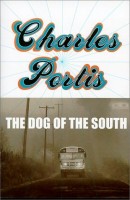 The Oxford American recently hosted its first annual “Best of the South” Awards Gala in Little Rock, Arkansas. The night’s honorees were Morgan Freeman and Charles Portis, a reclusive novelist with a cult following and the author of
The Oxford American recently hosted its first annual “Best of the South” Awards Gala in Little Rock, Arkansas. The night’s honorees were Morgan Freeman and Charles Portis, a reclusive novelist with a cult following and the author of 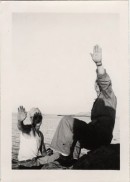 John Gall shares
John Gall shares 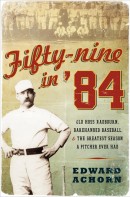 Time to dust off the baseball books. The Yankees haven’t won and the Mets haven’t lost, so you know it’s very early days. But they’re playing ball and all is right with the world. As usual, the season brings several new books on the subject. First among them might be
Time to dust off the baseball books. The Yankees haven’t won and the Mets haven’t lost, so you know it’s very early days. But they’re playing ball and all is right with the world. As usual, the season brings several new books on the subject. First among them might be 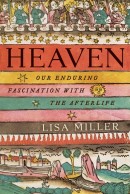 Lisa Miller’s Heaven tracks the historical development of the idea and reports on what current-day people imagine the afterlife will be.
Lisa Miller’s Heaven tracks the historical development of the idea and reports on what current-day people imagine the afterlife will be.  Acclaimed biographer Hermione Lee (
Acclaimed biographer Hermione Lee (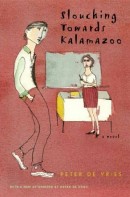 To follow up on
To follow up on  Maybe the key to raising and refining literacy is to treat it like blue jeans or beer and have beautiful people promote it. That’s the idea in China, anyway, according to
Maybe the key to raising and refining literacy is to treat it like blue jeans or beer and have beautiful people promote it. That’s the idea in China, anyway, according to  Mark Athitakis recently posted
Mark Athitakis recently posted 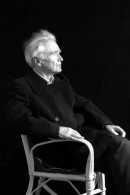 I didn’t know the New York Times has a blog entirely devoted to insomnia. It’s called All-Nighters.
I didn’t know the New York Times has a blog entirely devoted to insomnia. It’s called All-Nighters. 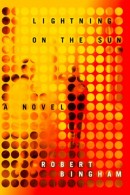 Andrew Adler
Andrew Adler 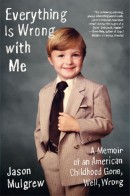 In a case of there being a first for everything, I recently purchased a book in exchange for fantasy baseball tips. The offer came from Jason Mulgrew, author of
In a case of there being a first for everything, I recently purchased a book in exchange for fantasy baseball tips. The offer came from Jason Mulgrew, author of 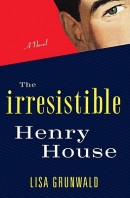 Liesl Schillinger
Liesl Schillinger 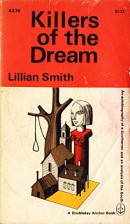 Lots of vintage book covers to explore at
Lots of vintage book covers to explore at 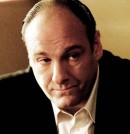 At Powell’s, novelist James Hynes has a brief essay titled
At Powell’s, novelist James Hynes has a brief essay titled 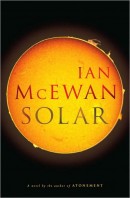 A long version this week that continues after the jump. . . . Reviews of Ian McEwan’s latest have been mixed, but the most thorough I’ve seen so far is Thomas Jones’
A long version this week that continues after the jump. . . . Reviews of Ian McEwan’s latest have been mixed, but the most thorough I’ve seen so far is Thomas Jones’  Michiko Kakutani
Michiko Kakutani  Michael Chabon
Michael Chabon 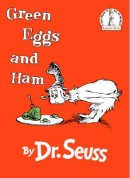 After publishing
After publishing 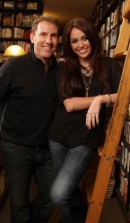 If, like me, you’ve been waiting with not much patience for Nicholas Sparks and Miley Cyrus to find a project worth working on together, wait no longer. That project is the movie The Last Song, an adaptation of a Sparks novel that hits screens later this month.
If, like me, you’ve been waiting with not much patience for Nicholas Sparks and Miley Cyrus to find a project worth working on together, wait no longer. That project is the movie The Last Song, an adaptation of a Sparks novel that hits screens later this month.  Benjamin Schwarz was
Benjamin Schwarz was  Cy Fox spent 50 years building a collection of work by writer and artist Wyndham Lewis. He then donated it all to the University of Victoria in British Columbia.
Cy Fox spent 50 years building a collection of work by writer and artist Wyndham Lewis. He then donated it all to the University of Victoria in British Columbia. 